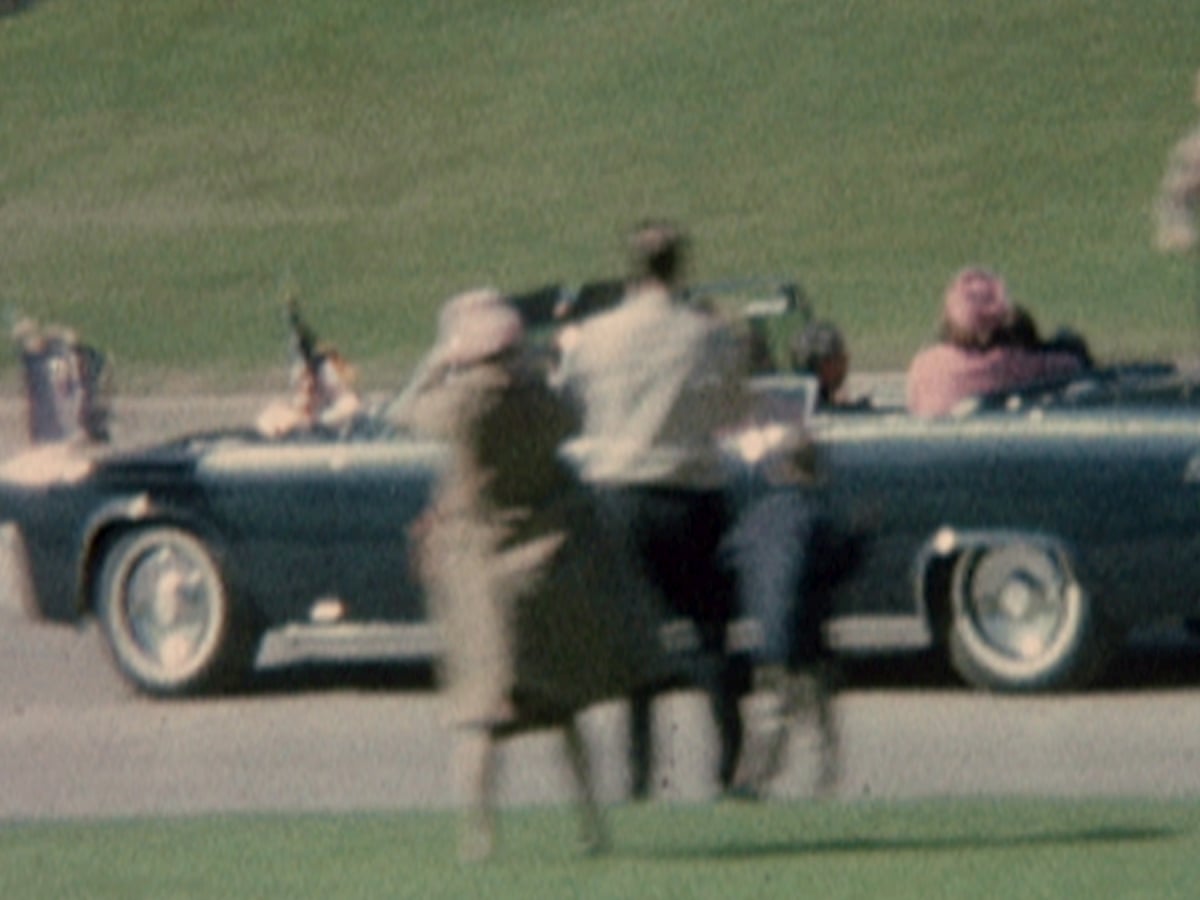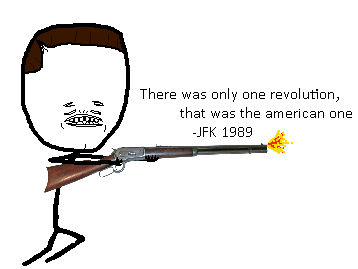Heya there! It won’t be fair enough to list the 5 Best or 10 Best games on PS4. The reason for that is the long list of games available on the console, which of course makes it hard to choose the best among them. As they are many best!
But now, I know you guys want to quickly know the must-play games on PS4. This is why I made a list of 4 Games that are freely accessible and definitely a must-try!
JFK: Reloaded puts the player in the role of Kennedy's alleged assassin, Lee Harvey Oswald. The player is then scored on how closely one's version of the assassination matches the report of the Warren Commission.
- Now with JFK Reloaded, you can test these conspiracy theories for yourself and see quite clearly that it's a load of honk. In 1993 a computer animator named Dale Myers embarked on a 10 year project.
- In JFK Reloaded you're supposed to accomplish the nearly impossible task of exactly recreating the JFK assassination, bullet by bullet, wound by wound. But once you realize doing so is nearly impossible you're going to want to just go wild with the game. Holy crap is that rewarding. The JFK assassination is a fertile playground for the imagination.
4 PS4 Games That Will Remain a Forever Classic For Me!
The PS4 games which will always remain special and close to the game lovers are –
Ni No Kuni 2: Revenant Kingdom
This one’s the sequel to the Ni No Kuni 1, still, you can play this game even though you haven’t played the former one. The colorful animations and the detailed, sharp graphics make the game stand out! It’s a Japanese role-playing game with not any overly-done animation or kingdom-detailing.
Call Of Duty: Black Ops 4
Who isn’t familiar with this best ps4 games! Black Ops 4 is a more refined season compared to all the previous COD games. The best part of this game is the multiplayer thing where space which is taken over by the previous multiplayer map giving it a huge massive look!
Shadow Of The Colossus
It’s has been the best of the game in PlayStation 2, 3 and now even for the 4th! If you have been following the game, there’s no huge change with the characters but they feel more real and fresh than before!

A Way Out

Here the game plot is of two convicted people who have escaped from all police offers in the world. Lol, they won’t be even concerned about you and your friend! Leo and Vincent – their friendship and bonding will win your hearts for sure.
Which PS4 game is your favorite? Let me know in the comments, along with the reason why you love it! Take care fellas, and keep coming back.
In my previous post on Play the Past, I looked at the way critics and scholars made sense of the videogame JFK: Reloaded (Traffic, 2004). The game lets players reenact the Kennedy assassination, the goal being to match the findings of the Warren Commission Report with as much accuracy as possible. Even though the Kennedy family called the game “despicable,” many scholars argued that JFK Reloaded was a legitimate engagement with history (see Raessens, 2006; Bogost, 2007; Fullerton, 2008; and Bogost et al., 2010). For my own part, I argued that the game’s greatest strength was not as a documentary videogame, but as an engine of counterfactual historical thinking. JFK Reloaded doesn’t ask us to play history so much as to reimagine history.
Today I want to double back on my and these other videogame scholars’ interpretations of JFK Reloaded. The game is indeed part of a documentary tradition, or to be more precise, an engagement with documentary evidence and historical archives, as Poremba suggests. But it is also a historical artifact itself.


In other words, the game emerges out of a specific time and place, textured by the touch of countless hands. I want to look at a very precise kind of texture, the human-readable comments that appear in the code in one of the two WAD files that comprise JFK Reloaded‘s game assets. WAD stands for “Where’s All the Data?”; a WAD file is a collection of individual sounds, sprites, level information, NPC (non-playable character) behavior, and other often customizable game data. Originally used in Doom, WADs or similar composite files are now commonplace in many PC games.
In the case of JFK Reloaded, opening up the core000.wad in a text editor reveals mostly binary codes that look like junk (because they ought to be opened in hexadecimal editor rather than a plain text editor). But beginning with line 224,070, we find plain text information that resembles XML structured data, accompanied by programmer comments.
For example, the following lines specify the actions that should occur when a generic character is fatally hit by Oswald’s rifle:
// Generic character’s killed action
// —————————————————————-
// This is the action that a character takes when they should die if
// they’ve got no special animation for it
// —————————————————————-
[ACTION]
<NAME>
PersonKilled
<DIE>
0
0
<RAGDOLL>
Notice the double slashes: //. Any line that begins with the double slash is a comment in the code. Code comments pose a number of interesting epistemological challenges. They are ignored by the machine interpreter and readable by humans, but not exactly legible. They are visible only if one is able to view the source code. They are not intended for the end-user, but with the right tools, the end-user might find them. In fact, I wasn’t the first to find these comments in the JFK Reloaded WAD file. BrooksMarlin noticed them in 2004, but nobody to my knowledge has ever read these comments against the game itself and against the existing scholarship on the game.
We can think of code comments as a kind of textual marginalia—the doodles, notes, and corrections that authors and readers add in the margins of a text. When I asked on Twitter if marginalia was an accurate way to think about code comments, Patrick Murray-John, a developer at the Roy Rosenzweig Center for History and New Media (who also happens to have a Ph.D. in Anglo-Saxon literature), suggested that the medieval division of marginalia into separate categories might have an analog in computer code comments. As Murray-John notes, medieval scholars distinguished between lectio and enarratio. Lectio refers to aids for reading at the level of comprehension—notes and marks that help a reader make the text legible (originally for the purposes of reading aloud). Enarratio refers to marginalia that actually help readers interpret the text on a rhetorical and symbolic level. To lectio and enarratio we might also add, as Whitney Trettien suggests, emendatio, comments that correct or even offer improvements to the existing text (such as we might find in an open-source project, with one developer making suggestions on another developer’s code).
The marginalia in JFK Reloaded‘s WAD file resembles enarratio, not only helping us to make sense of the individual lines of code that follow the comment, but also offering an interpretative gloss on the code. For example, in the following snippet, Jackie Kennedy’s actions are defined:
// —————————————————————————
// Jackie cradling JFK before the money shot
// —————————————————————————
[ACTION]
<NAME>
JackieCradleJFK
<CONCERNED>
0
0
The use of the informal and vaguely sexual phrase “money shot” begins to shed some light on the developers’ attitude toward the subject matter (what we’d call the author’s “tone” in literary studies). The strictly objective perspective that we (often falsely) associate with documentary media begins to dissolve here.
The tone becomes much more obvious in the following snippet of code, which defines Nellie Connally’s actions when her husband, Texas Governor John Connally, is shot:

// —————————————————————————
// Nelly shoving Connally’s bonce down into her minge,
// in a last desparate attempt to get oral sex out of
// him before he croaks
// —————————————————————————
[ACTION]
<NAME>
NellyShoveConnally
<CONCERNED>
0
0
In just three lines of code commentary, the developers at Traffic absolutely undermine the entire stated pedagogical project of their docu-game. Their outwardly respectful “interactive reconstruction of John F. Kennedy’s assassination” is undone by inaccuracies and misspellings (Nelly for Nellie, “desparate”) but even more so by the explicitly sexual reframing of this traumatic event. It’s difficult to take JFK Reloaded as a serious exploration of history when under the hood it resembles an adolescent joke, preoccupied with sex and making light of death (“before he croaks”).
In addition to undermining Traffic’s official rationale for the game, these comments in the code also complicate the arguments of the critics who defended the game. Access to the code allows us to write a revisionist history of JFK:Reloaded. Yet how far should we go in letting the marginalia of the game, which was never intended to be available to the player, guide our interpretation of the game? On one hand, it’s important to keep in mind the “intentional fallacy,” the idea—first formulated by New Critical literary scholars—that an author’s stated intention should be ignored when interpreting a literary work. One should trust the story, not the storyteller, this line of thinking goes. One the other hand, though, the exegesis of the underlying code and assets of the game expands the story itself.
In the final analysis I’m more interested with these broader questions of critical code studies than this particular game. What does an attentiveness to code, or even the comments in code, mean for cultural historians who study digital artifacts? Decoded and viewed through a revisionist approach, these questions might be the ultimate legacy of JFK Reloaded.
[JFK Photo courtesy of NASA / Public Domain]
Works Cited
Bogost, Ian. 2007. Persuasive Games: The Expressive Power of Videogames. Cambridge: MIT Press.
Bogost, Ian, Simon Ferrari, and Bobby Schweizer. 2010. Newsgames : Journalism at Play. Cambridge: MIT Press.
Fullerton, Tracy. 2008. Documentary Games: Putting the Player in the Path of History. In Playing the Past: Nostalgia in Video Games and Electronic Literature. Vanderbilt University Press.
Jfk Reloaded Exe
Poremba, Cindy. 2009. “JFK Reloaded: Documentary Framing and the Simulated Document.” Loading… 3 (4). http://journals.sfu.ca/loading/index.php/loading/article/viewArticle/61.
Jfk Reloaded Cheats
Raessens, Joost. 2006. “Reality Play: Documentary Computer Games Beyond Fact and Fiction.” Popular Communication 4 (3): 213-224.